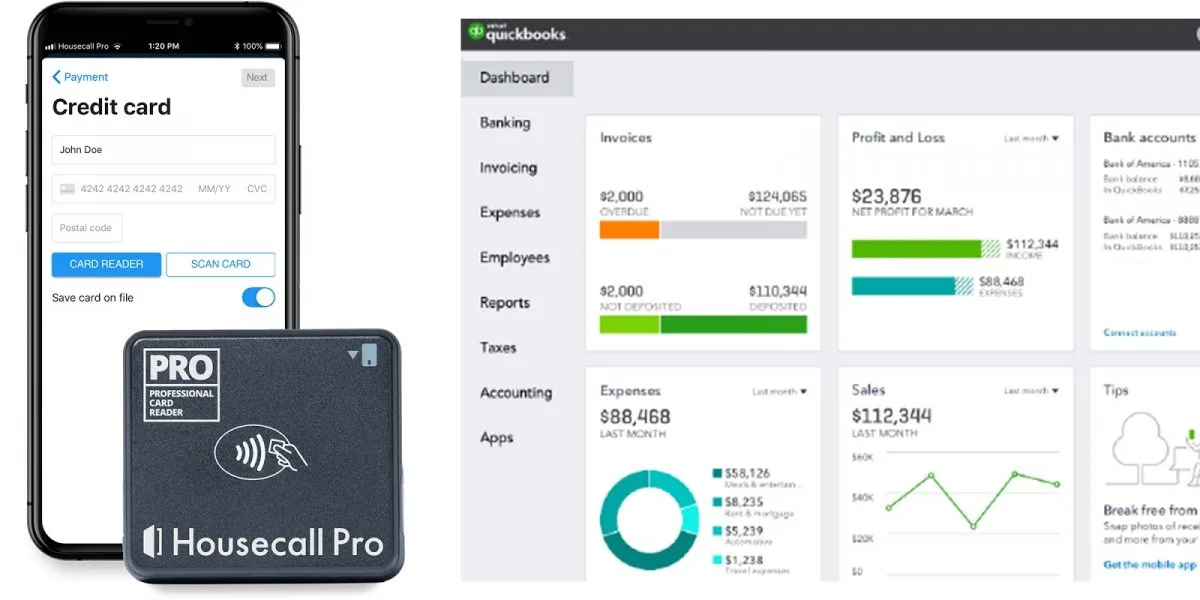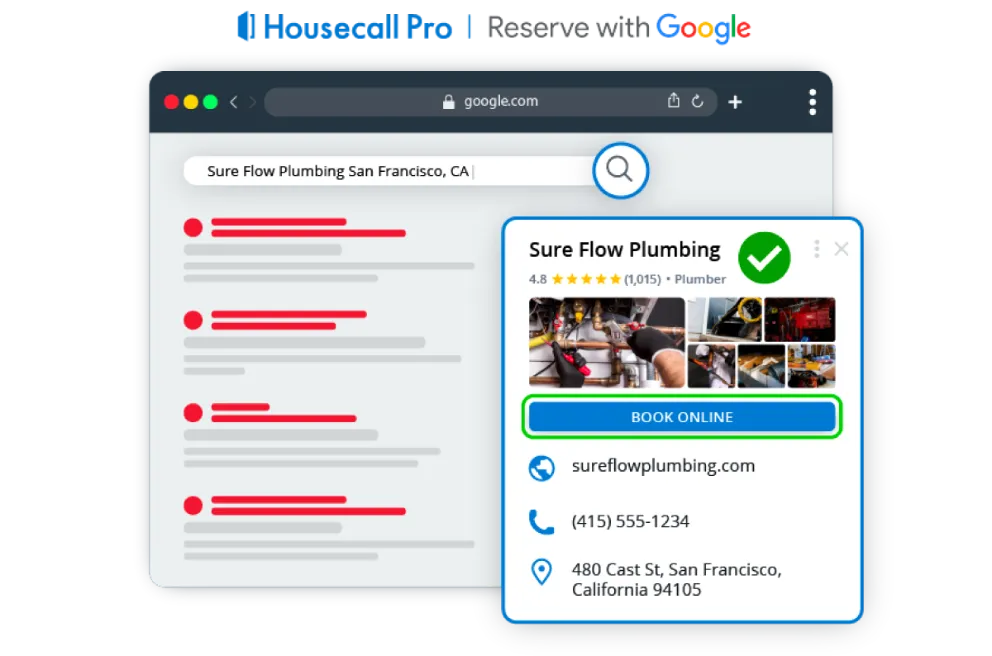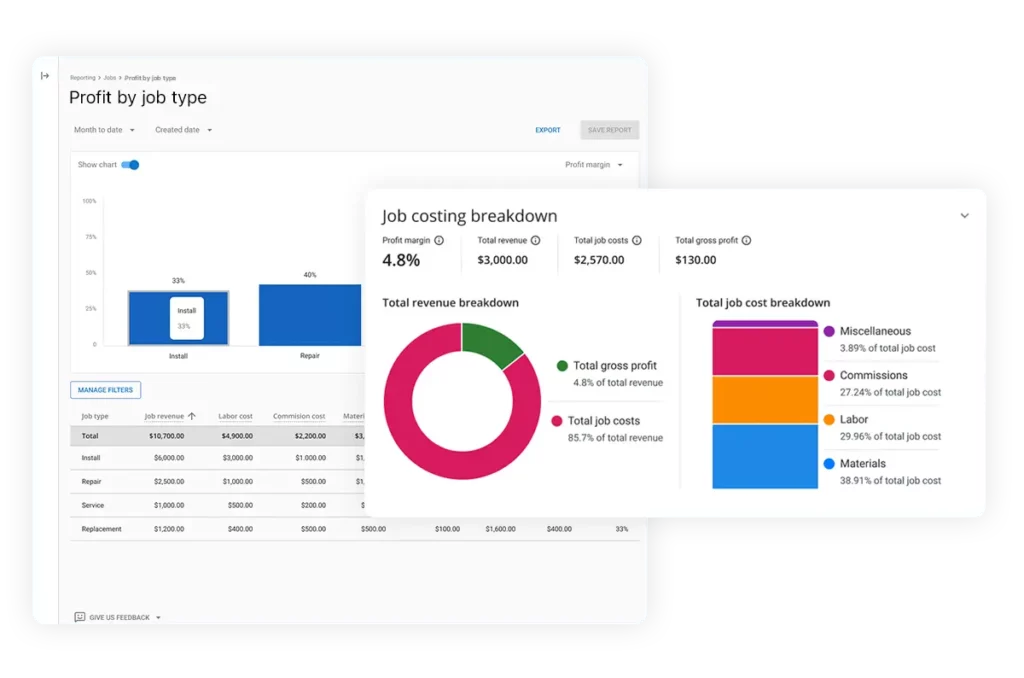
Starting a business can be a really exciting time. You have a service to offer, and you know that there are consumers who can benefit from what you are selling. But starting a business, such as a landscaping company, takes a bit of work. Without a blueprint on what to do and when you might miss some important steps that can have some big implications down the road.
In this article, we’ll walk you through all the steps of how to start a landscaping business. And before long, your customers will start to see the benefits: beautiful gardens, neatly trimmed gardens and shrubbery, no more weeds, and so much more. Keep reading on to learn what you need to know to launch your new landscaping venture.
Jump ahead to each section
- How Much Capital Do You Need to Start a Landscaping Business?
- How to Start a Successful Landscaping Company
- 1. Develop a Well-Thought-Out Business Plan
- 2. Decide on a Legal Structure & Register Your Business
- 3. Obtain and Necessary Licences and Permits
- 4. Get Your Businesses’ Financials in Order
- 5. Protect Your New Company with Business Insurance
- 6. Set Rates for Your Landscaping Work
- 7. Invest in Tools & Landscaping Equipment
- 8. Build a Great Team of Skilled Landscapers
- 9. Land Your First Client Deal with a Detailed Marketing Strategy
- 10. Impress Clients with the Highest Quality Service
- 11. Scale Your Business with Landscaping Business Software
- Invest in Your Landscaping Business with Service Software from Housecall Pro
How Much Capital Do You Need to Start a Landscaping Business?
Let’s get started with one of the key questions that want-to-be landscaping business owners ask—how much is this going to cost me, anyway? After all, you need to spend some money to make money. But just how much does that initial investment need to be? Well, the answer is that start-up costs can vary.
An article from Lawn Love, a well-known landscaping services provider in the U.S., suggests that starting a successful landscaping business will cost about $5,000 to $8,000. This estimate covers essentials like a lawn mower, trimmer, a vehicle to get your equipment to the job site, landscaping business software to help you manage the business and safety gear such as knee pads and gloves.
You might also need basic hand tools like pruners, shovels, and rakes to tackle various landscaping tasks. Investing in quality equipment upfront can save you time and money in the long run, helping you provide professional and efficient services to your clients.
How to Start a Successful Landscaping Company
Now that you know how much you will need to invest to get started, let’s go through those steps to getting your business up and running.
1. Develop a Well-Thought-Out Business Plan

A business plan is a foundational requirement of any business. It lays out the business you are going into, what you hope to achieve, the products and services you will be offering, and how you will inform customers that your landscape business is out there. More specifically, a business plan will cover the following:
- Business Goals: Define your short-term and long-term goals. Specify what you aim to achieve in the first year, the next five years, and beyond.
- Financial Projections: Prepare detailed financial projections, including startup costs, revenue forecasts, and break-even analysis. This will help you understand the financial feasibility of your business and plan for future growth.
- Services Offered: List the services you will provide, such as lawn mowing, garden design, shrub trimming, and weed control. Be clear about what you can offer to attract a wide range of clients.
- Pricing Strategy: Develop a pricing strategy based on market rates and your cost structure. Keep your prices competitive yet profitable to sustain your business.
- Marketing Plan: Outline your marketing strategy to attract and retain customers. This should include the development of a website, digital marketing efforts such as videos and blogs, social media campaigns, local advertising, and customer referral programs.
- Competitive Market Analysis: Conduct a thorough analysis of your competitors. Understand their strengths and weaknesses, and identify opportunities for your business to stand out in the market.
- Funding Sources: Determine where you will get funding to start and grow your business. This could include personal savings, bank loans, or investors.
2. Decide on a Legal Structure & Register Your Business
Now that your business plan is in place, it is time to decide the type of legal structure that is best for your landscape company. Once you know that, you can begin the registration process. However, the team at Housecall Pro suggests talking to a financial advisor or certified accountant to help you make the best decision.
What’s the Best Business Structure for Landscaping Businesses?
The best legal structure for a landscaping business will depend on a wide range of factors like state regulations, business goals, and financial projections. We recommend consulting with a legal professional or business advisor who can assess your specific situation and provide tailored suggestions. Here are some things that can help you make the best decision for your landscaping business.
Pick a Memorable and Relevant Business Name
Choose a name that reflects your services and is easy for customers to remember. Make sure the name is unique and not already in use by another business. And, to help with your future marketing efforts, come up with a name that gives potential customers clarity that you are a landscaper.
Decide on a Legal Structure
Next up, based on professional guidance from a financial advisor or certified accountant, decide the right structure for you. This will have serious implications on taxation and future growth for your company, so be sure to do your homework. Here are the common options to choose from.
- Sole Proprietorship: This is the simplest form of business structure, where you are the sole owner and responsible for all aspects of the business.
- Limited Liability Company (LLC): An LLC offers more protection from personal liability and is flexible in terms of management and taxation.
- Corporation: A corporation is more complex and suitable for larger businesses, offering significant liability protection and the ability to raise capital through stock.
Register Your Business
Once you have chosen your business structure, register it with the appropriate state and local authorities. This makes sure that your business is legally recognized and can operate within your state.
Obtain an Employer Identification Number (EIN)
Apply for an EIN from the IRS. This number is a must for tax purposes and is required if you plan to hire employees. Thankfully, it is a quick process, and your number will be assigned in just a couple of days.
3. Obtain and Necessary Licences and Permits
Depending on your geography and the cities in which you work, you may need specific permits or licenses to operate a landscaping business. Check with your local government to comply with all regulations.
What Licenses Are Needed To Start a Landscaping Business?
To start a landscaping company, various licenses, and permits are typically required depending on the location and scope of services offered. It’s important to check with your local government to understand the specific requirements in your area. These are some of the most common licenses and permits needed to start your landscape business:
- Contractor’s License: In some states, a contractor’s license may be required for certain landscaping services, especially if you are involved in construction-related activities such as building retaining walls, installing irrigation systems, or other large projects. Check with your state’s contractor licensing board for specific requirements.
- Pesticide and Fertilizer Permits: If your services include the application of pesticides or fertilizers, you may need specific permits or certifications. This often involves passing an exam to demonstrate your knowledge of safe application practices and understanding the environmental impact. Comply with both state and federal regulations regarding pesticide use.
- Zoning and Land Use Permits: Some areas may require zoning or land use permits, especially if you plan to operate your business from a home office or specific commercial location. Check local zoning laws to confirm you are operating within legal parameters.
- Specialty Licenses: Additional specialty licenses might be required depending on your service offerings. For example, arborists may need certifications to perform tree care services legally.
4. Get Your Businesses’ Financials in Order

Next on the list is to get those financials in order. We can’t emphasize this one enough. An estimated 82% of small businesses fail due to cash flow problems, and you don’t want to become part of that statistic.
Here are some things that need to be high on your priority list.
- Open a Dedicated Business Bank Account: Separate your personal and business finances by opening a dedicated business bank account. This helps in maintaining clear financial records and simplifies tax filing. It also enhances your business’s professional image.
- Use Accounting Software: Utilize accounting software like QuickBooks to manage your finances efficiently. These tools can help you track income, and expenses, and generate financial reports. They also simplify the process of invoicing clients and managing payroll.
- Consider Hiring an Accountant: Hiring an accountant for monthly reconciliation and tax preparation can be a wise investment. An accountant can keep your books accurate, help you understand your financial health, and provide advice on financial planning and tax strategies.
- Obtain a Business Credit Card: Get a business credit card to manage expenses and build business credit. A business credit card can help you keep track of business expenses, provide short-term financing, and often come with rewards and benefits tailored to business needs.
- Set Up a Budget and Monitor Cash Flow: Create a budget to plan your income and expenses. Regularly monitor your cash flow to keep enough funds on hand to cover your operating costs and avoid potential cash flow problems.
- Plan for Taxes: Set aside tax funds and be aware of your tax obligations. This includes federal, state, and local taxes. Be aware of self-employment taxes, too, which might mean you need to hold a bit more out of your earnings to make sure you are covered. Paying estimated quarterly taxes can help you avoid a large tax bill at the end of the year, and your accountant can help set this up for you. The good news is that you can deduct 50% of your self-employment tax on your income taxes at the end of the year.
5. Protect Your New Company with Business Insurance
This is an important step that many new business owners forget about (or don’t realize it is something they need to do). And when you are in the landscaping business, working on someone else’s property and working with tools and the potential for injury, this needs to be a non-negotiable.
Here are the types of insurance you will need to consider.
- General Liability Insurance: Covers injury and property damage claims. This type of insurance protects your business if a third party (e.g., a customer or a bystander) gets injured or if you accidentally damage someone’s property while performing your landscaping services. It can cover medical expenses, legal fees, and repair costs.
- Commercial Auto Insurance: For vehicles used in your business. Commercial auto insurance is a must if you use vehicles to transport equipment or travel between job sites. It covers accidents, theft, and damage to vehicles used for business purposes, ensuring that you’re not left with hefty repair bills or liability costs.
- Worker’s Compensation: Required if you have employees. This insurance covers medical expenses and lost wages if an employee gets injured on the job. It’s mandatory in most states and helps protect your business from potential lawsuits related to workplace injuries.
- Equipment Insurance: Protects your tools and equipment from damage or theft. Landscaping relies heavily on specialized tools and equipment, which can be expensive to replace. Equipment insurance lets you quickly replace or repair essential tools, minimizing downtime and financial loss in case of damage or theft.
Most new business owners work with a local insurance broker who can help them source the policies that they need. You can also choose to go right to the source. For example, The Hartford offers affordable small business worker’s compensation policies that provide the coverage you need.
6. Set Rates for Your Landscaping Work
Setting the rates for the services you will offer is a bit part of your business strategy. You need to make sure that the rates you charge not just cover the time and overhead costs put into the job, but give you enough profit to help you grow your business and pay yourself a salary.
To have a profitable landscaping business, you need to decide on a pricing structure that will eliminate barriers to entry. Your clients and work will differ, so consider these common pricing strategies to help you deliver high-profit services:
- Flat-rate pricing (also called fixed-rate pricing):
Flat rate pricing involves charging an upfront cost for the entire job, including labor, materials, overhead expenses, and profit margin. It’s best suited for smaller jobs like lawn mowing and maintenance. The benefits include simplicity for customers, minimized potential conflicts, and easier business budgeting. - Hourly rate pricing:
This strategy charges customers based on the estimated number of hours a job will take. It’s especially beneficial for startups or small businesses who may not have enough experience to accurately estimate jobs. It ensures businesses receive adequate payment for labor costs, particularly for long-term or time-intensive jobs. - Value-based pricing:
This approach sets prices based on the perceived value of services to customers rather than just costs. It works well for midsize to large landscaping businesses and is considered one of the most profitable models. It requires demonstrating to customers why a company’s expertise, quality, and specialty services distinguish them in the market.
Here’s how to set rates for your landscaping company.
- Investigate Competitors: Research how much to charge for lawn-mowing and other services by looking at what competitors in your area charge for similar services.
- Offer Tiered Rates: To cater to a wide range of customer needs, offer different rates for various services, such as mowing, planting, and design work. Appropriate job costing will help you turn a profit.
- Cost and Profit Analysis: Make sure your rates cover all costs, including labor, materials, and overhead while providing a reasonable profit margin to sustain and grow your business.
Read more: Flat rate vs hourly, which is best for your business?
7. Invest in Tools & Landscaping Equipment

Investing in the right landscaping tools and equipment will truly help your business succeed. Start by sourcing reputable suppliers for high-quality materials so that your services meet professional standards.
- Basic Landscaping Tools: Invest in essential tools such as lawnmowers, hedge trimmers, blowers, and hand tools. These are the backbone of your daily operations, allowing you to provide a wide range of services efficiently.
- Work Trucks and Company Vehicles: Purchase or lease work trucks and vehicles that can haul larger equipment and transport tools and materials to various job sites. Reliable transportation is vital for maintaining your schedule and meeting client expectations.
- Specialized Equipment: Depending on your services, you might need specialized equipment, such as aerators for lawn care or snow plows for winter services. Assess your business’s needs and invest in equipment that can expand your service offerings and improve efficiency.
8. Build a Great Team of Skilled Landscapers

You may decide to keep your business small, managing it on your own. But in most cases, landscapers quickly find that they need to hire a team of highly skilled workers to keep up with demand and satisfy customers. In the landscaping business, it’s either raining or the sun is out, which means grass and weeds are constantly growing. As such, your services will be in constant demand.
To determine staffing needs, evaluate the volume of work and the variety of services offered. Recruit employees through job postings, local ads, and referrals. Provide comprehensive training to help your team meet your quality standards and understand safety protocols.
9. Land Your First Client Deal with a Detailed Marketing Strategy

Word-of-mouth can go a long way in the landscaping business. But often, it isn’t enough to help you grow and scale your business. That’s why a marketing strategy is so important. Your marketing strategy should include the following, at a minimum.
- Create a Logo and Brand Identity: Develop a professional logo and consistent brand identity to make your business easily recognizable and memorable. If design is not your forte, you can find graphic designers on platforms like Upwork or Fiverr to help you get a graphic at a low cost.
- Create a Professional Website: Build a website listing your services, contact information, and customer testimonials. A well-designed website can attract potential clients and provide them with all the information they need to hire you.
- Claim Your Free Google Business Profile: Claim and optimize your Google Business Profile to improve your visibility in local search results and make it easy for customers to find and contact you. With Housecall Pro’s reserve with Google integration, customers can book your services straight from the search results.
- Establish a Social Media Presence: Engage with potential clients by creating profiles on social media platforms like Facebook, Instagram, and LinkedIn. Share photos of your work, customer reviews, and useful tips to build a following and attract new business. To take it a step further, hire a business blogger who can create great content that you can share on your website and social media, too.
- Run Ads in Your Service Area: Promote discounts, offers, and special promotions through local advertising channels. Running targeted ads can help you reach a broader audience and attract more clients to your business.
10. Impress Clients with the Highest Quality Service

We’ve talked to a lot of business owners in the landscaping space, and one thing they can’t emphasize enough is the quality of service. There are an estimated 1,290,133 people employed in the landscaping business in the U.S., which means that there is a lot of competition. If your company does a poor job, a competitor is right around the corner vying for your customer’s business.
- Personalize Your Services: Tailor your services to meet the specific needs and preferences of each client. Understanding and addressing their unique requirements will help you build strong relationships and repeat business.
- Professional Appearance: Dress professionally, use branded equipment, and make sure that courtesy and respect are non-negotiable. A professional appearance can instill confidence in your clients and reflect positively on your business.
- Attention to Detail: Check every aspect of your work, from the initial estimate to project completion, to make sure it reflects the highest attention to detail and workmanship. Consistently high standards will set you apart from competitors.
- Solicit Reviews: Ask clients for reviews after each project and use their feedback to improve your services. Positive reviews can boost your reputation, while constructive criticism can help you refine your business practices. Use a review management tool to simplify the process and make sure you never miss a response.
11. Scale Your Business with Landscaping Business Software

Last but certainly not least, make your business more efficient with landscaping software. Technology tools can go a long way in making sure you don’t overschedule, never miss paying an invoice, and so much more.
Here are some key tools to consider:
- Estimating Software: Estimating software helps you create accurate and professional estimates quickly. This lets you provide clients with precise quotes, improving your credibility and helping you win more business.
- Scheduling Software: Use scheduling software to manage your appointments and crew assignments efficiently. This helps prevent overscheduling.
- Invoicing and Payment Software: Simplify your billing process with invoicing software. This allows you to promptly generate and send invoices, track payments, and manage your cash flow.
- Customer Relationship Management (CRM) Software: CRM software helps you manage client information, track interactions, and follow up on leads. This enhances your customer service and helps you build long-lasting relationships with clients.
- Business Phone System: As your business grows, you’ll need to handle more call volume. Easily handle calls, organize workflows, and keep all customer info in one place. Never miss a crucial call with Voice from Housecall Pro.
Invest in Your Landscaping Business with Service Software from Housecall Pro
If you have been wondering how can I start a landscaping business, you have come to the right place. At Housecall Pro, we’re in the business of helping landscapers become more effective and efficient by using technology. So, if you are opening a landscaping business, do not miss out on this opportunity. Start your free trial today.






